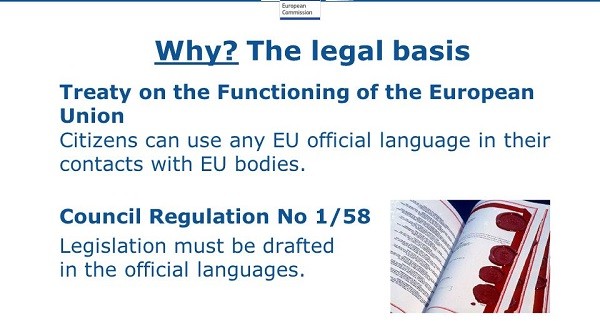TRANSLATION IN THE EU: LANGUAGE AND LAW IN THE EU’S JUDICIAL LABYRINTH (Martina Künnecke)
“Translation theorists and comparatists agree that ‘the language of law is very much a system-bound language, id est, a language related to a specific legal system. Translators of legal terminology are obliged therefore to practice comparative law’.
Amongst the problems in legal translation between two or more legal systems, the main problem is that of equivalence. Equivalence has been defined in relation to the functional constancy between source text and target text.
This principle of legal equivalence is an expression of a more flexible dynamic approach to translation, moving away from a literal approach.
In countries like Belgium and Switzerland, the drafting of multilingual legislation gave rise to a change in how legal texts should be translated. As all these documents were to be authentic versions, the master and servant relationship between source and target language does not provide the parallel texts with a convincing translation strategy.
‘Where the source and target language relate to different legal systems, equivalence is rare.’
‘Regardless of the type of text involved, all legal translators must deal with the problem of terminological incongruence.’
It has been suggested that the legal translator should ‘abandon the concept of equivalence in favour of a more flexible comparative approach. The difference lies in the presupposition that legal concepts as part of a national system of laws are fundamentally different across legal systems and that only a comparative approach is possible; the establishing of equivalence relations is not’.
However, there is no doubt that legal translation is an exercise in comparative law. When a legal concept in one system does not have a comparable counterpart in other legal systems, the translator has to employ strategies to measure the degree of equivalence and ultimately take a decision on how to compensate for partial or complete incongruence”.
Source: The Maastricht Journal of European and Comparative Law
Author: Martina Künnecke




Lascia un Commento
Vuoi partecipare alla discussione?Fornisci il tuo contributo!